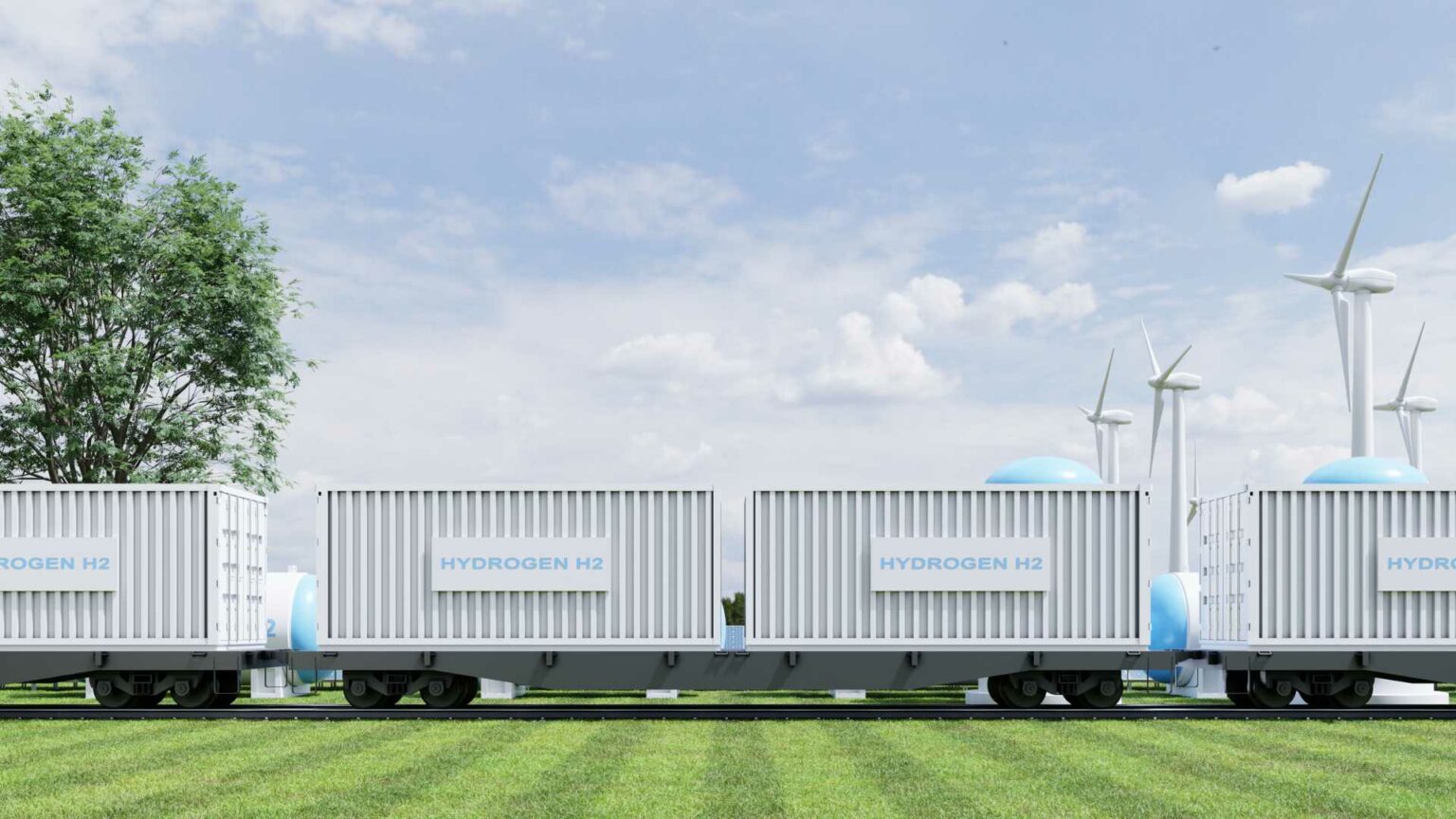With 4,953 kilometers of Spain’s railway network still dependent on diesel traction—representing 42.5% of the 11,672-kilometer ADIF-managed system—the Transport and Sustainable Mobility Ministry has initiated a Preliminary Market Consultation to explore hydrogen and battery alternatives. This consultation targets six non-electrified lines, including Ávila-Salamanca, Torralba-Soria, and Huesca-Canfranc, as global hydrogen fuel cell train deployments generate projected revenues of $653.6 billion over the next 15 years with growth rates exceeding 100% annually.
Spain’s current electrification rate of 57.5% aligns precisely with the EU average, according to Eurostat data for 2023, yet falls significantly below regional leaders like Luxembourg (96.7%) and Belgium (88.0%). This positioning reflects the challenge of retrofitting extensive conventional rail networks while managing the economics of alternative propulsion technologies that remain largely experimental at commercial scale.
The timing of Spain’s market consultation coincides with the accelerating European deployment of alternative rail technologies. Germany launched hydrogen-powered trains in Brandenburg while deploying 31 battery trains with 120-kilometer range on the East Brandenburg network, demonstrating operational viability for specific route configurations. However, these deployments remain limited in scope and geographic distribution, raising questions about scalability for Spain’s diverse topographical and operational requirements.
Electrification Economics versus Alternative Technologies
The Ministry’s 2026 deadline for completing its Indicative Strategy creates pressure for rapid decision-making on technologies that require substantial infrastructure investment with uncertain long-term viability. Traditional electrification involves predictable capital costs and proven operational reliability, while hydrogen and battery systems introduce variables including refueling infrastructure, maintenance complexity, and technology obsolescence risks.
Recent European developments provide mixed signals about alternative technology adoption. Switzerland’s Stadler Rail achieved a hydrogen train distance record of 2,803 kilometers over nearly two days, demonstrating technical capability under controlled conditions. However, this achievement occurred under test rather than commercial service conditions, limiting its relevance for evaluating real-world operational reliability and cost structures.
Battery technology shows promise for shorter routes, with German Mireo Plus B trains achieving 120-kilometer range and EcoTrain eMode variants reaching 80 kilometers on battery power alone. Spain’s targeted lines vary significantly in length and service patterns, requiring careful matching of technology capabilities to operational requirements rather than assuming universal applicability.
Infrastructure Investment and Market Reality
The projected $653.6 billion global hydrogen train market over 15 years suggests substantial commercial interest, yet this figure requires scrutiny regarding geographic distribution and technology maturation timelines. Current hydrogen train deployments remain concentrated in Northern European markets with specific policy support and infrastructure availability that may not translate to Spanish conditions.
ADIF’s recent €119.6 million investment in electrifying the Zaragoza-Teruel-Sagunto line demonstrates continued commitment to conventional electrification alongside alternative technology exploration. This parallel approach suggests recognition that different solutions may be optimal for different route characteristics, rather than seeking universal technology replacement.
The Ministry’s emphasis on “transparency, equal treatment, and non-discrimination” in the market consultation process indicates awareness that technology selection could significantly impact domestic and international equipment suppliers. Spanish manufacturers like CAF and Talgo have invested heavily in conventional and high-speed rail technologies, potentially creating industrial policy considerations beyond pure technical optimization.
Operational Complexity and European Compliance
Spain’s commitment to the European Commission’s decarbonization targets creates regulatory pressure that may override pure economic optimization in technology selection. The EU’s 2035 diesel phase-out timeline for new vehicles could extend to rail applications, making alternative technologies mandatory regardless of comparative economics with electrification.
The six targeted lines represent diverse operational challenges that could serve as test cases for broader network transformation. The Huesca-Canfranc line’s mountainous terrain differs substantially from the Zafra-Huelva route’s coastal characteristics, providing opportunities to evaluate technology performance across varied geographic and climatic conditions.
Current European hydrogen train deployments in over 30 countries suggest broad international interest, yet this geographic distribution masks significant variations in deployment scale, operational success, and long-term viability. The 100% growth rate projection reflects early-stage market development rather than mature industry expansion, indicating substantial uncertainty about future market evolution.
Technology Maturation and Strategic Risk
The Ministry’s market consultation approach attempts to balance technological innovation with operational reliability requirements, yet the 2026 completion timeline may be insufficient for comprehensive technology validation. Unlike high-speed rail development, which benefited from decades of incremental improvement, hydrogen and battery train technologies require simultaneous advancement in rolling stock, infrastructure, and operational protocols.
Spain’s rail network carried over 549 million passengers in 2024, a 2.8% increase over 2023, creating operational continuity requirements that limit tolerance for technology experimentation on active commercial routes. The selected non-electrified lines must therefore serve dual purposes as both commercial services and technology demonstration platforms.
The intersection of European decarbonization mandates with Spain’s rail modernization objectives creates a policy environment where alternative technologies may receive implementation priority despite uncertain economic advantages over conventional electrification. This dynamic reflects broader tensions between environmental policy acceleration and infrastructure investment optimization that extend well beyond Spain’s specific railway decisions.





